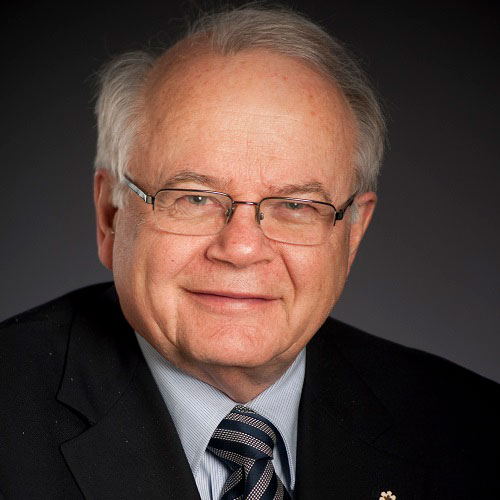Pandemic Perspectives: D. Lorne Tyrrell
Ryan O'Byrne - 23 September 2020

The COVID-19 pandemic has made it very clear that good research is vital to stopping the spread of the virus and preventing the next pandemic from having as great an impact as this one.
Distinguished University of Alberta professor, virology researcher and founding director of the Li Ka Shing Institute of Virology, Lorne Tyrrell, will be participating in the online panel discussion event “Pandemic Perspectives – What we’ve learned from COVID-19” on Sept. 23. Tyrrell gives us a sneak peek at what he will be discussing at the panel, including some of the lessons he has learned and what has surprised him during the pandemic.
What has been your perspective in approaching the COVID-19 pandemic?
I have done research in virology for the last 35 years, working on hepatitis B, hepatitis C, HIV and more recently COVID-19. So my perspective is that I feel a great responsibility to try to make significant contributions to fighting this disease.
How has COVID-19 changed your professional life?
COVID-19 came on rapidly and we responded rapidly, but it has been a huge amount of work. For example, I am now serving on the national COVID-19 Vaccine Task Force appointed jointly by the deputy minister of health and the deputy minister of innovation, science and economic development. This is a major commitment but very important.
What is something about this pandemic that has surprised you?
This virus is different from a number of viruses and we’ve seen it doing things that we didn't expect, such as the effects on organs such as the heart, kidneys and brain, in addition to the respiratory effects. But I’ve also been surprised by how quickly scientists have been able to respond. For example, there are about eight different approaches to making vaccines, and some of these have developed faster than anything we've seen before, so it might be possible to produce an effective vaccine in two years, rather than the eight to 10 it would normally take.
If you could go back in time and give yourself one piece of advice at the start of the pandemic, what would it be?
I would say that even though we were into developing vaccines very early, we should have started even a month or two earlier than that.
What can people expect from you at the panel?
I’d like people to leave the panel understanding that I'm very optimistic that we'll get a very good vaccine and antivirals within a year or two. I really think that we can change the rate of infection with vaccines and the course of the disease with effective antivirals used at early times in the infection.
EVENT INFORMATION
Pandemic Perspectives - What we’ve learned from COVID-19
Date: Wednesday, Sept. 23
Time: 7 p.m.
Registration: https://bit.ly/34yNaSm
Panellists:
Carole Estabrooks, Faculty of Nursing. '87 MNurs, '97 PhD
Dean Eurich, School of Public Health. '03 MSc, '07 PhD
Lynora Saxinger, Faculty of Medicine & Dentistry
Lorne Tyrrell, Faculty of Medicine & Dentistry. '64 BSc, '68 MD
Moderator: Lawrence Richer, Faculty of Medicine & Dentistry. '92 BSc(Hons), '96 MD, '09 MSc